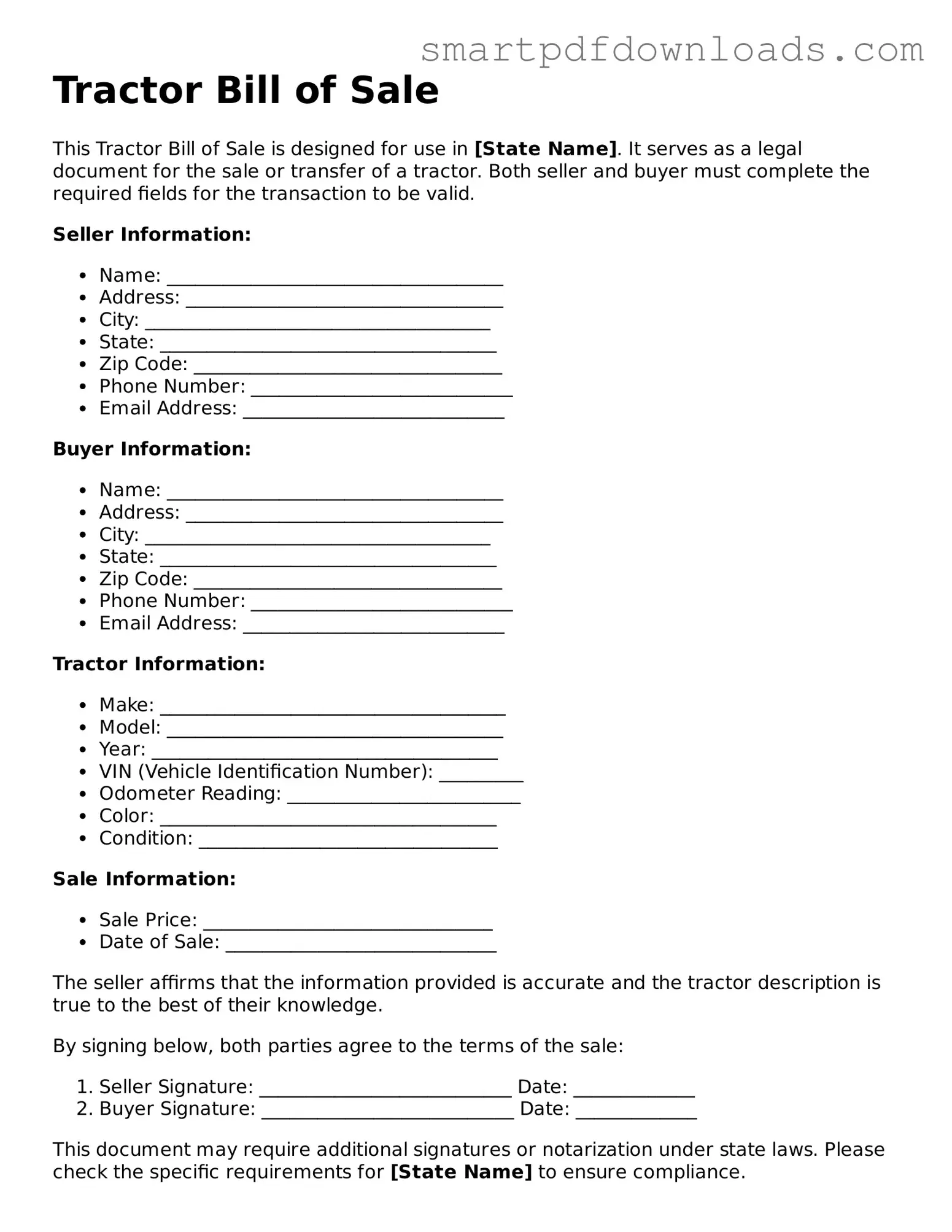Free Tractor Bill of Sale Form
A Tractor Bill of Sale is a legal document that records the sale and transfer of ownership of a tractor from one party to another. This form serves as proof of the transaction, detailing essential information such as the buyer's and seller's names, the tractor's identification details, and the sale price. Having a properly completed bill of sale can help protect both parties in the event of future disputes.
Edit Tractor Bill of Sale Online

Free Tractor Bill of Sale Form
Edit Tractor Bill of Sale Online

Edit Tractor Bill of Sale Online
or
⇓ PDF File
Finish the form and move on
Edit Tractor Bill of Sale online fast, without printing.